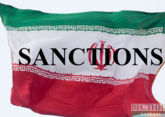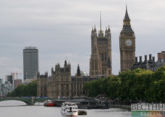Tensions are steadily rising between Iran and the United States. To the point that experts in the U.S. Congressional Research Service (CRS) took up modeling the situation and the most likely scenario. Within a few days of scrupulous analysis and study of the situation, a report was prepared that CRS submitted to the parliament's approval.
The document states that the relations between Washington and Tehran has the potential to escalate into "significant conflict" in which the United States has the capability to undertake "a large range of options" against Iran, both against Iran directly and against its proxies. CRS experts identify the three most likely scenarios if the confrontation between Washington and Tehran does not decline. "The design of effective military options depend on the policy goals that Washington seeks to accomplish... and if necessary, it could establish a naval and/or air quarantine of Iran, the option of invasion" the report says.
So what are the three possible scenarios are offered by CRS?
The first one: Tehran and Washington have explored ways to de-escalate the tensions. According to experts, this is possible if Iran first accepts the U.S. proposal for negotiations on some additional limits beyond those stipulated in the JCPOA. After that, the parties outline a number of topics that could be discussed and further implemented.
The second scenario is even simpler and more declarative. It assumes that the parties will continue to exchange statements, keeping in mind the admissibility of small controlled excesses. That is, nothing will change in general - tensions might not evolve to military conflict, but might not result in talks.
The third scenario is further escalation. CRS already now pictures Tehran as the culprit of the escalation. The report said that the Iranian leadership is able to take measures against American employees or hurt American interests in any other way. In this case, the most likely U.S. response will be a military invasion. But whether it will be limited or expansive, it will depend on the goals that Washington seeks to accomplish. Such action could take the form of air operations, ground operations, special operations, or cyber and electronic warfare.
The CRS report emphasizes that the use of force will result in retaliatory action from Iran. The situation will become tense, the apogee of which may be no less than the third world war. This, of course, is not in the interests of either the United States or Iran. The authors of the report note that U.S. military action may not be the appropriate tool to achieve systemic change within the Iranian regime. Moreover, Washington’s use of force could worsen the situation for Iranians sympathetic to a change of regime in their country. Employing overt military force is also likely to strengthen anti-American elements within the Iranian government.
Do not forget that military operations in Iran will require significant amounts of money, and Washington’s readiness raises some questions. It is no coincidence that the latest sanctions imposed by the U.S. against Iran were precisely financial and strictly restrictive. They hit Tehran's main financial institutions: the Central Bank and the National Development Fund of Iran. Washington designated them terrorism supporting entities. This is despite the fact that the Yemen's Houthis, against whom the coalition of Arab countries led by Riyadh is fighting, took responsibility for the recent attack against the Saudi oil refineries. U.S. Secretary of State Mike Pompeo, despite the transparency of the situation, asserted that there was no evidence that the attacks came from Yemen. Pompeo stressed that most likely, Tehran was behind the attack. After him, the dubious accusation was repeated by members of the Arab coalition.
It seems that Washington is deliberately, not really reckoning with the realities, pushing for the third scenario proposed by CRS experts, which doesn't rule out the outbreak of the third world war.
Foreign Ministry Spokeswoman Maria Zakharova, commenting on the situation in the region, said that Washington’s actions would not help stabilization. "We proceed from the fact that all the steps made in that region should pursue the main goal of stabilizing the situation. Regrettably, the policy of the United States and some other countries cannot bring about this outcome, but can trigger an opposite one. There is no additional stability or stabilization of the situation, except destabilization, so every measure should, firstly, have the legal basis, and secondly, should pursue the main goal of easing tensions in the region and stabilization," Zakharova said, noting that all measures taken in this regard should be legally justified and facilitate to stabilization in the region.










